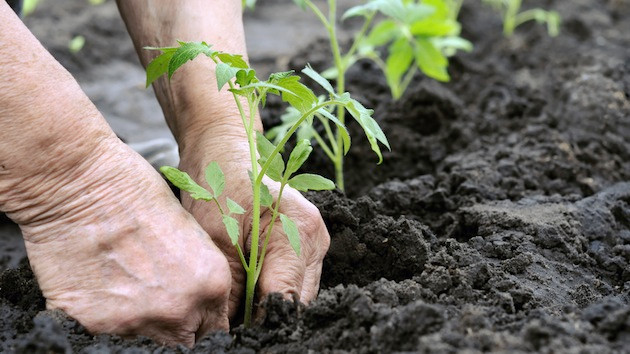After years of steady growth in demand, organic food now accounts for 5 percent of US food sales. Yet organically managed land makes up just 1 percent of US farmland. Why hasn’t the craze for organics moved from the supermarket to the countryside? The problem isn’t a lack of profitability, a new paper  from Washington State University researchers David Crowdera and John Reganold finds.
from Washington State University researchers David Crowdera and John Reganold finds.
The authors crunched data from 44 studies involving 55 crops grown on five continents over 40 years and found that organic farming is somewhere between 22 percent and 35 percent more profitable for farmers than conventional. The reason: the higher price farmers get when they sell certified-organic crops. This “premium,” as it’s known, stands at around 30 percent, and stayed roughly equal over the four-decade period, the authors report.
They also found that organic farming would retain its profitability edge even if its price advantage dropped significantly: at a premium as low as 5 percent, they found, the two systems are equally profitable. The costs of doing business are roughly equal for the two systems: Organic farmers save on chemical inputs, but essentially substitute labor for chemicals (think hoeing weeds vs. dousing them with herbicides) and thus have higher labor costs.
According to the studies they analyzed, organic farming delivers lower yields than conventional, by somewhere between 10 percent and 18 percent (mainly driven by use of synthetic and mined fertilizers). This yield penalty, it should be noted, is not necessarily set in stone. For the purposes of this paper, the authors looked at studies comparing conventional and organic ag as they’re practiced in the field in a variety of contexts.
But agrichemical-intensive agriculture has received far more research-and-development over the decades than organic has. And when organic ag is lavished with serious research, it has proven the ability to deliver comparable yields—see, for example, the well-respected test plots at the Rodale Institute in Pennsylvania.
And farmers’ work isn’t just about generating maximum yield in any one growing season; it’s also about maintaining healthy soil and limiting pollution. Here, the Washington State authors note, organic ag delivers “greater energy efficiency; enhanced soil carbon and quality; greater floral, faunal, and landscape diversity; and less pesticide and nutrient pollution of ground and surface waters.”

